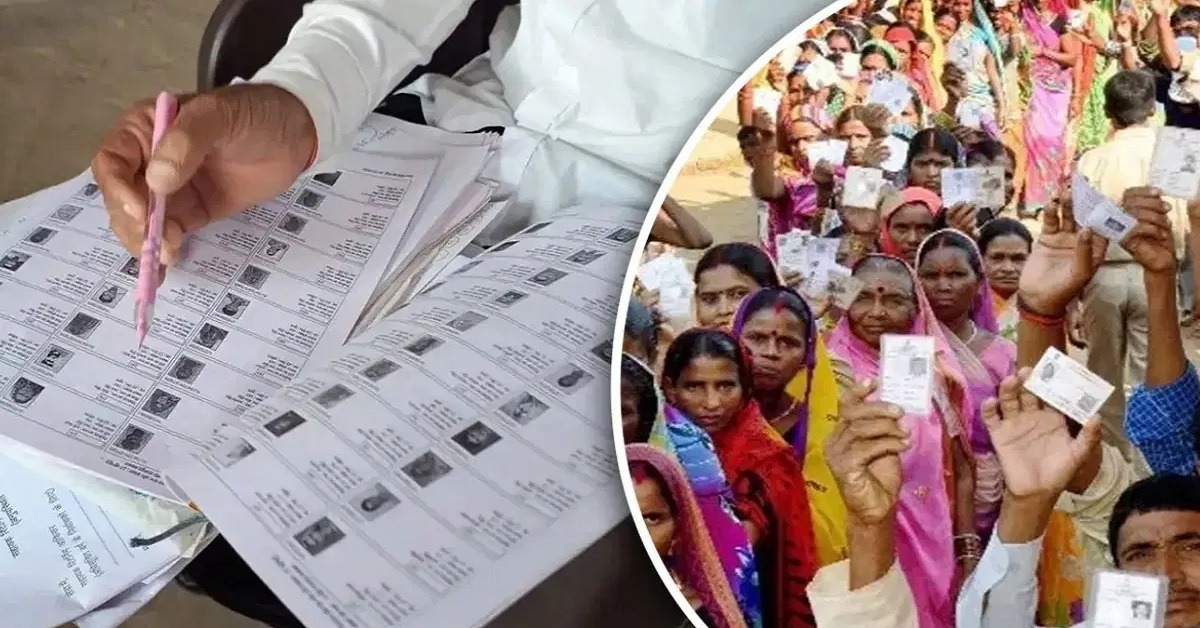 Image Source : Sabrang India
Image Source : Sabrang India
The recent Special Intensive Revision (SIR) of the electoral rolls in Bihar has uncovered a remarkable finding: approximately 75% of the current 7.89 crore voters can be traced directly or indirectly to the 2003 electoral roll. Building on this data and experience, the Election Commission of India (ECI) is now gearing up to implement a nationwide SIR exercise aimed at ensuring electoral roll accuracy and integrity ahead of multiple state elections in the coming months.
Key Takeaways From Bihar’s SIR Exercise
Over half (52%) of Bihar’s current electors were directly found on the 2003 roll, while an additional 25% were indirectly identified through family linkages in the “Parivarik Suchi” or family tree system.
The SIR requires voters to prove citizenship by submitting educational or birth documents, with exceptions granted to those listed in the 2003 rolls and their close relatives.
Bihar’s final electoral roll following SIR will be published on September 30, ahead of the state assembly elections slated for later this year.
The comprehensive verification exercise involved house-to-house visits by Booth Level Officers (BLOs) who collected enumeration forms and proof from voters.
The Bihar model displayed decreased administrative burden for voters linked to older rolls and improved accuracy by weeding out duplicates or non-eligible entries.
Election Commission’s Nationwide Rollout Plans
Inspired by Bihar’s progress, the ECI is planning a pan-India rollout of the SIR to enhance roll integrity nationwide. A recent conference with Chief Electoral Officers (CEOs) from all states and Union Territories focused on adopting the Bihar model’s strategies, challenges, and best practices to ensure uniform implementation.
The nationwide SIR is expected to:
-
Cover all states and Union Territories, with exceptions for regions like Bihar where it has already been conducted.
-
Use the last intensive revision year (mostly 2002-2004) as the baseline to identify and verify existing electors across the country.
-
Require submission of enumeration forms with proof of citizenship on par with Bihar’s documentation requirements.
-
Digitally upload and publish verified electoral rolls on CEO websites to increase transparency and public accessibility.
-
Rationalize polling station allocation to maintain optimal voter density per booth, enhancing election management.
The Need For Special Intensive Revision
The SIR is a response to the constitutional mandate under Article 324 to ensure the accuracy and sanctity of electoral rolls. The exercise is aimed at:
-
Removing duplicate, bogus, or deceased electors from the rolls.
-
Verifying citizenship and residency credentials in view of national security concerns such as illegal migrants.
-
Facilitating free and fair elections by listing only eligible voters.
-
Adapting to demographic changes like migration, deaths, and adult voter additions since the last major roll updates.
Roadblocks And Judicial Oversight
The SIR in Bihar faced some political opposition and public concerns about disenfranchisement due to documentation challenges. The Supreme Court has intervened to ensure eligible voters do not get excluded unfairly, urging the Election Commission to streamline validation norms and accept alternative proofs where necessary.
What's Next? The Pan-India Timeline
While the Election Commission has not yet fixed exact dates for the nationwide SIR, officials have hinted at a possible rollout by year-end 2025. With assembly elections due in Assam, Kerala, Puducherry, Tamil Nadu, and West Bengal in 2026, the nationwide SIR will be critical in preparing clean electoral rolls ahead of these polls.
Conclusion: Voter Roll Revision Strengthens Indian Democracy
The Bihar SIR exercise’s success in tracing 75% voters to the 2003 list showcases the value of special intensive audit measures to maintain updated, reliable electoral rolls. The Election Commission’s plan to extend this model nationwide represents a significant step toward bolstering election integrity and enhancing democratic processes in India. Voters and officials alike stand to benefit from greater transparency, accuracy, and fairness in future elections.
Sources: The Indian Express, MoneyControl, Election Commission of India, NDTV, PTI
Advertisement
Advertisement






